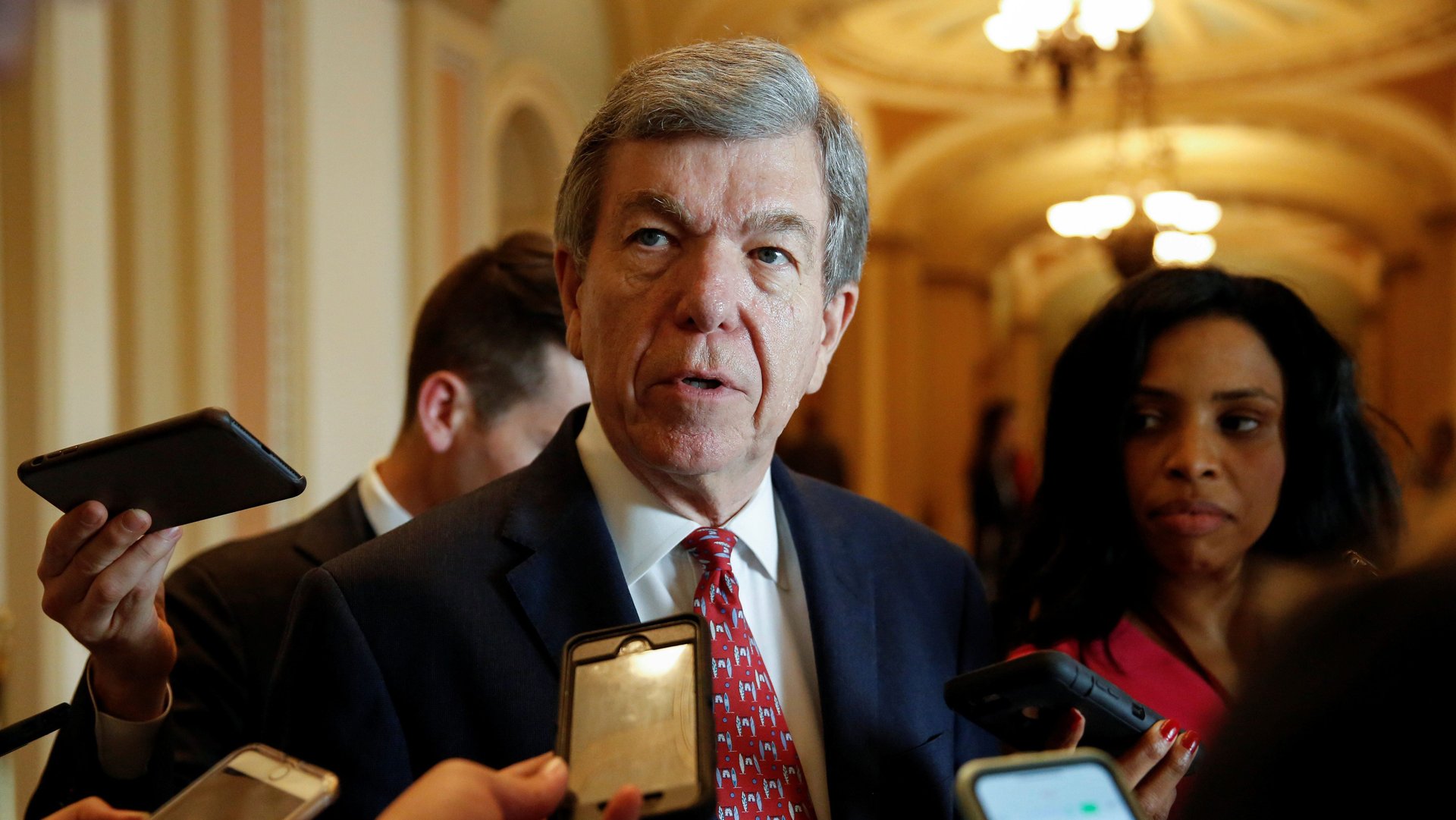Republicans voted down Trump’s national emergency. Now what?
The Republican-controlled US Senate just joined the House of Representatives to block Donald Trump’s emergency declaration to fund a wall on the US border using money seized from the Pentagon.


The Republican-controlled US Senate just joined the House of Representatives to block Donald Trump’s emergency declaration to fund a wall on the US border using money seized from the Pentagon.
The Senate voted 59 to 41 on a bill that declares the emergency declaration unconstitutional, weeks after the Democratic-controlled House approved a similar motion on a 245 to 182 vote. The situation is the rare Senate rebuke for Trump: Majority leader Mitch McConnell has mostly kept bills from the floor that could force the Republicans to vote in a way that could be considered disloyal to the president.
Who voted against Trump
Every Democrat in the Senate voted to block Trump’s declaration, with most of them saying that the president’s attempt to use emergency powers to appropriate funds that he hadn’t been budgeted was unconstitutional. They were joined by 12 Republican senators, more than expected, many of whom made the same argument:
Lamar Alexander, Tennessee, who told constituents he worried that future presidents would abuse the power.
Roy Blunt, Missouri, who voted in line with most Trump positions in the last congressional session, but said he worried Democrats could use an emergency declaration to pass gun control.
Susan Collins, Maine, who crossed Trump on health care but backed his Supreme Court nominee Brett Kavanaugh. She said weeks ago she would block Trump’s declaration.
Mike Lee, Utah, who earlier co-sponsored a bill to prevent a run-in with the president on the issue that would limit president’s powers to declare emergency declarations in the future. (The House wouldn’t take it up.)
Jerry Moran, Kansas, who shared three pages of hand-written reasons for voting to block Trump’s emergency declaration on Twitter, including unconstitutionality and not wanting to give Trump powers he wouldn’t have granted president Obama.
Lisa Murkowski, Alaska, who has frequently voted against Trump-backed bills, and said that Trump’s declaration “goes around the express intention of Congress on matters within its jurisdiction.”
Rand Paul, Kentucky, who said he can’t support giving Trump “extra-constitutional powers,” ie those not in the Constitution.
Rob Portman, Ohio, the other co-sponsor of the failed bill to prevent a confrontation with Trump on the issue.
Mitt Romney, Utah, who said he was making a “vote for the Constitution and for the balance of powers that is at its core.”
Marco Rubio, Florida, who said he “cannot support moving funds that Congress explicitly appropriated for construction and upgrades of our military bases.”
Pat Toomey, Pennsylvania, who said he supports what the president is trying to do but not “the way the president is going about it.”
Roger Wicker, Mississippi, who said Trump’s declaration might “empower a future liberal president to declare emergencies to enact gun control or to address ‘climate emergencies’ or even to tear down the wall we are building today.”
Notably, self-defined “constitutionalists” Ted Cruz of Texas and Ben Sasse of Nebraska didn’t vote to block Trump.
Trump’s first presidential veto
The bill will go to the White House, where Trump has said earlier that he will veto it, making this the first time that he’s refused to sign a bill passed by both sides of Congress.
White House press secretary Sarah Huckabee said Thursday afternoon she wasn’t sure when that would be, but within twenty minutes of the Senate vote, Trump had indicated he had not changed his mind:
Veto overrides are rare
Trump’s veto will send the bill back to Congress. For Trump’s emergency declaration to be permanently blocked, two-thirds of the members of both chambers of Congress need to vote to override the veto, or 290 members of the House (there are currently 235) and 67 members of the Senate.
In this case, the House will need to pick up 45 more Republican votes and the Senate another 8 to veto the bill, which is politically unlikely, because it would mean a huge number of elected politicians in states that Trump won in 2016 turning their back on the president.
Overriding a presidential veto has only happened 111 times in American history, as congressional reporter Chad Pergram points out:
Separately, there are multiple court cases challenging the declaration. Ultimately the issue is likely to wind up in front of the Supreme Court, where it will serve as a litmus test for judges.